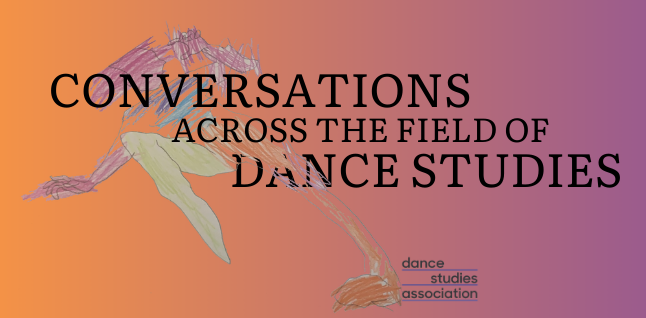Liner Notes: Imani Kai Johnson
The conversation between b-girls big tara and Stash begins with a not-unexpected reference to a “tomboy streak” and quickly gives way to a rich interweaving of their particular lives from completely different parts of the world. However, the resonances in their experiences signal that they’re b-girls of a similar generation. Both foreground the culture, personal growth, and developing relationships. And though the word “misogyny” doesn’t come up until midway through their exchange, and “racism” even further along, their stories nonetheless activate the nitty-gritty of their gendered, racialized, and classed experiences. From being spat on for entering a cypher to racial epithets thrown around in unchecked minstrelsy, Stash and big tara talk about these experiences with a casualness of everyday life. Yet it is also clear that such incidents animate their narratives as watershed moments that motivated them to stand more firmly in their practice. Their responses share a sensibility: to elevate their craft and maybe their hustle, and offer a hearty F.U. to anyone standing in their way.
When I first came to the interview, I brought big tara and Stash on a walk with me, allowing their voices to fill my headphones. Then I replayed their conversation with background music and sat with them as if we were hanging out. I laughed and mm-hmm’d along, and they used the doublespeak of an in-group conversation held in front of outsiders. For example, both b-girls were cautious to not “name names” in a manner that might instigate drama. In fact, they only named people to give credit. In the end, so much went unspoken. Yet I also understand that I never feel totally in the know because I’m not meant to. Both purposefully (publicly) under-articulate certain discussions—for example, tara’s brief reference to predatory behavior—because they are also ambassadors of a culture about which the public still has a lot to learn. And you need much more skin in the game and in the cypher for such disclosures. I appreciate that kind of stance. You should too.
Author Biography
Imani Kai Johnson is an interdisciplinary scholar whose research focuses on African diasporic ritual cultures, Hip Hop dance in global circulation, and intersections of race, nation, and gender. Her manuscript on breaking cyphers and their epistemological possibilities is forthcoming with Oxford University Press and is titled Dark Matter in Breaking Cyphers: Africanist Aesthetics in Global Hip Hop. She has published articles in Dance Research Journal, Alif, Women & Performance, and the Cambridge Companion to Hip Hop. Dr. Johnson is the founder and conference chair of the “Show & Prove” Hip Hop Studies Conference Series. She is also the co-editor of the forthcoming Oxford Handbook of Hip Hop Dance Studies. She is Assistant Professor of Critical Dance Studies at the University of California, Riverside.
